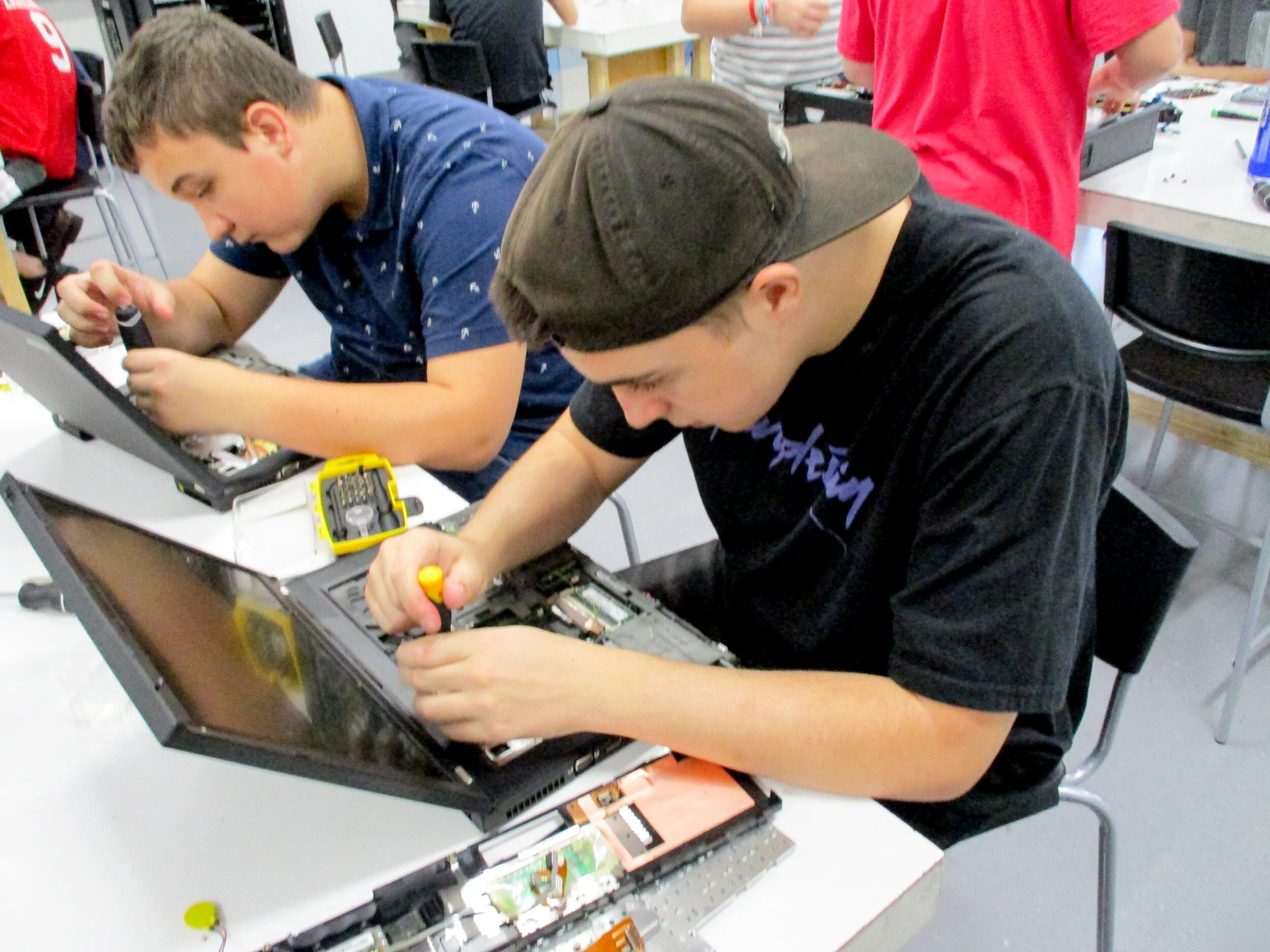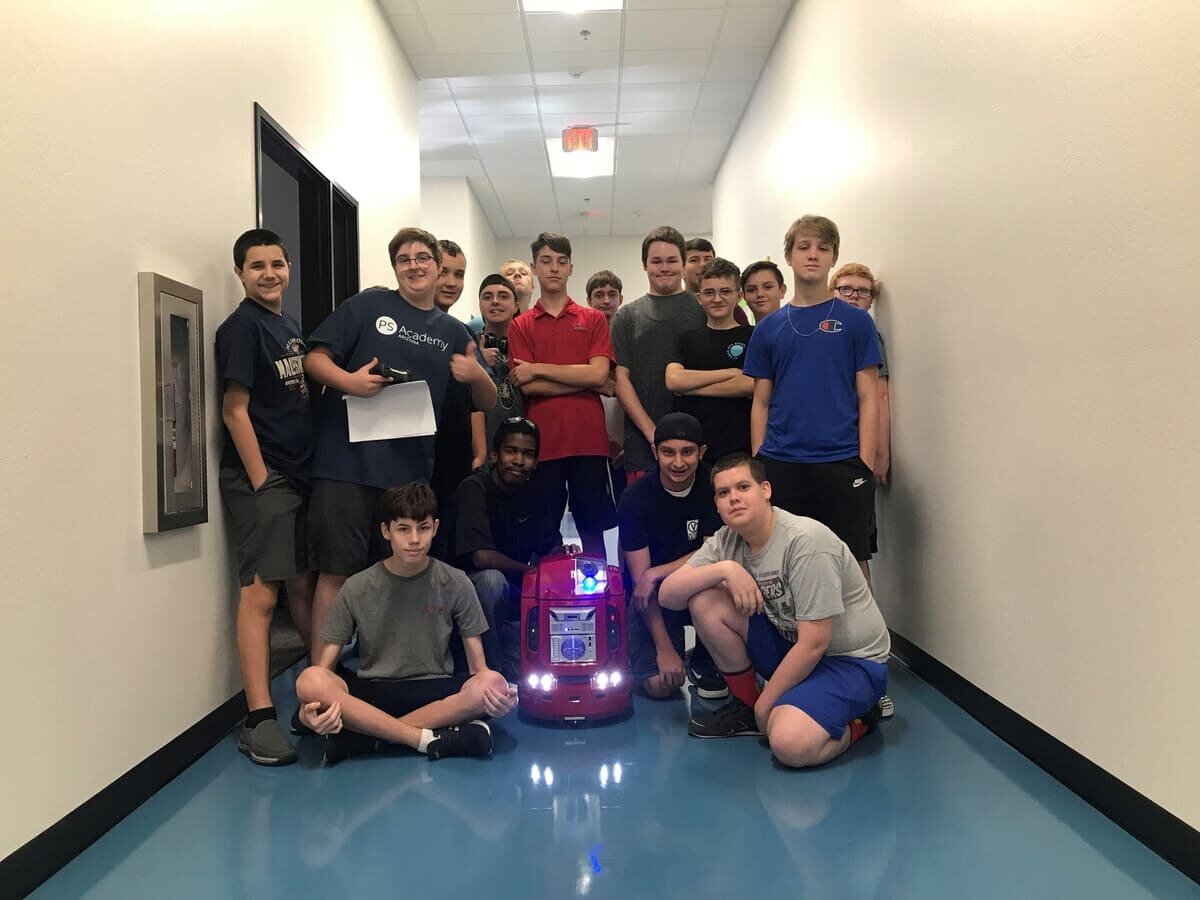Careers for People with Autism
It’s Autism Awareness Month, and we are strong believers that autism awareness should happen year-round! We encourage you to explore more of our blogs here.
This month, we want to focus on the ABLE and see past the label. That’s why we’ve put together this post on the abilities of people with autism, particularly as they relate to careers.
What do you want to be when you grow up?
The question every kid is asked from the time they can start day-dreaming about grown-up life, to the point when it’s time to actually make that big career-path decision.
This is no different for students with autism. Before making this important choice, it’s important to evaluate strengths and passions on an individual level and see what careers could be a potential match.
What are the strengths and capabilities people with autism typically display? Of course, these vary person to person, but generally speaking, many excel in:
Learning information quickly.
Thinking and learning in a visual way.
Logical thinking abilities.
Academic areas such as science, engineering and mathematics as they are technical and logical subjects that do not heavily rely on social interaction.
Having an extraordinarily good memory (being able to remember facts for a long period of time).
Being precise and detail-orientated.
Exceptional honesty and reliability.
Being dependable in regards to schedules and routines.
Being very punctual.
A strong adherence to rules.
The ability to concentrate for long periods of time when motivated.
Having a drive for perfection and order.
Having a capability for alternate problem solving.
Having a rare freshness and sense of wonderment!
With that said, what are some of the career paths that could fit these unique capabilities?
Information Technology
Some of the most talented software engineers and computer programmers have been diagnosed with autism. IT can be the perfect career choice for people who have taken a liking to computers, especially for those who prefer little social interaction, as most work is done in their own personal space with just their computer. Not to mention, many IT jobs are going 100% remote, meaning the employee can choose where to work from.
This career choice requires strengths that include strong mathematics skills, understanding of complex systems and an appreciation for order.
Luckily, IT is a very broad field, and there are plenty of jobs to choose from. Not only is it one of the fastest-growing industries in America, but it’s also one of the most lucrative.
Here are some of the most sought-after IT jobs in the country:
Network Architects - design and build data communication networks, including local area networks (LANs), wide area networks (WANs), and Intranets.
Programmers/software developer - A computer programmer, sometimes called a software developer, a programmer or more recently a coder, is a person who creates computer software.
Database Administrators - use specialized software to store and organize data. They plan, install, configure, monitor and troubleshoot databases.
Web developer - a web developer is a programmer who specializes in, or is specifically engaged in, the development of web applications or websites.
Computer Analysts - research the hardware and software that are part of an organization's computer systems in addition to the ways in which the systems are being used.
Some of these career paths require a college degree, but others, like web developers, do not.
Science and Research
Those with autism often want everything to be perfect and have an eye for detail – something that is highly valued in the science industry.
There are also strict procedures, practices, and compliance to adhere to, making it ideal for someone who thrives on order and structure.
Some career paths to explore are:
Environmental scientist - collect and compile environmental data from samples of air, soil, water, food, and other materials for scientific analysis. Analyze samples, surveys, and other information to identify and assess threats to the environment. Develop plans to prevent, control, or fix environmental problems, such as land or water pollution.
Lab equipment manager - recommend, implement and evaluate laboratory equipment maintenance policies, procedures, methods and standards to increase overall reliability and uptime of lab equipment.
Biotechnologist - seek to understand and manipulate the basic building blocks of living things, and they use the techniques of molecular biology to do so. They study the genetic, chemical and physical attributes of cells, tissues and organisms, and identify practical uses for this knowledge.
Medical researcher - design and conduct studies to investigate human diseases, and methods to prevent and treat them. Medical scientists conduct research aimed at improving overall human health. They often use clinical trials and other investigative methods to reach their findings.
These career paths require a college degree and sometimes an advanced degree, depending on the type of job and specific industry choice.
Animal-Related Careers
Who doesn’t love having a furry friend around? Many children with autism love having a cat or dog at home and that friendship may eventually turn into a career passion.
There are plenty of various jobs to choose from in the animal field, some of which include:
Animal sitting/walking - provide daily care for pets while their owners are away.
Farmhand - make sure that the day to day running of a farm goes as smoothly as possible
Livestock caretaker - train, feed, groom, and exercise animals.
Veterinarian - care for the health of animals and work to improve public health.
Groomer - works on a dog's ears, fur, and nails to get the pet as clean and neat looking as possible.
Animal Trainer - knows how to teach dogs, horses, or even marine animals to display certain behaviors or keep them from exhibiting others.
Zookeeper - feed, maintain, and clean the animals, diet preparation, behavioral observation, record keeping, exhibit maintenance and providing environmental enrichment for the animals in their care.
Depending on the job, some require a college degree. This field is not as high-paying as the aforementioned fields and the industry isn’t growing as rapidly, but many jobs are easy to break into and volunteer opportunities or internships are options as well.
Finance
Finance is mostly details, and just having the ability to systematize, categorize, and focus on details can be a huge advantage. Jobs in finance require high attention to detail and consistent attention.
When it comes to those with autism, some of the best jobs are those that thrive on detail and examination:
Auditor - gather information from a company's financial reporting systems, account balances, cash flow statements, income statements, balance sheets, tax returns and internal control systems.
Accountant - provides financial information to management by compiling and presenting reports, budgets, business plans and financial statements.
Financial Analyst - guide businesses and individuals in decisions about expending money to attain profit. They assess the performance of stocks, bonds, and other types of investments.
These jobs all require college degrees and in some cases, additional certification. But, they are always in high demand and are very well-paying careers.
Engineering
Similar to the IT world, these jobs are in very high demand and require plenty of math and science skills.
Some of the jobs that are attractive to people with autism are:
Mechanical engineer - design power-producing machines, such as electric generators, internal combustion engines, and steam and gas turbines, as well as power-using machines, such as refrigeration and air-conditioning systems, and more.
Aviation engineer - responsible for the maintenance of planes and the systems onboard. This means running diagnostics, making repairs, troubleshooting problems and making upgrades.
Electric engineer - design, develop, test and manage the manufacturing of electrical equipment, from electric motors and navigation systems to power generation equipment and the electrical components of vehicles and personal devices.
Chemical engineer - apply the principles of chemistry, biology, physics, and math to solve problems that involve the production or use of chemicals, fuel, drugs, food, and many other products.
All of these jobs require a college degree and additional training as well. But someone that has studied engineering is likely to find a job even before graduating college.
Conclusion
As you can see, there are plenty of career options for people with autism. There is a wide range of careers that vary in expertise and skill set. With the right support and systems in place, these individuals can follow their passions and find a career in which they can be both successful and happy.
Here at PS Academy, we are ready to help your child establish a strong footing before moving onto their next step in life. If you’re interested in learning more about our school or how we assist our students in their post-education life, reach out to us today!



